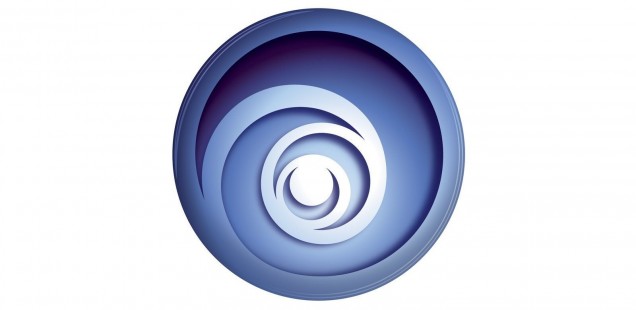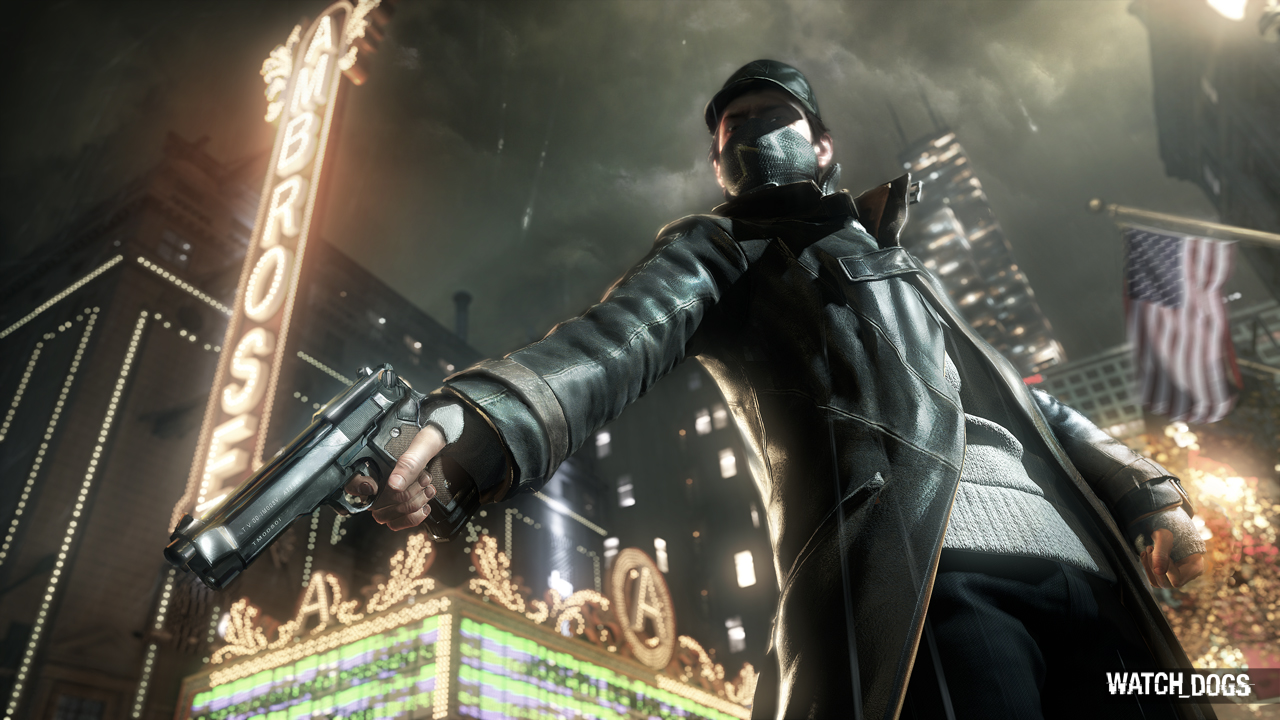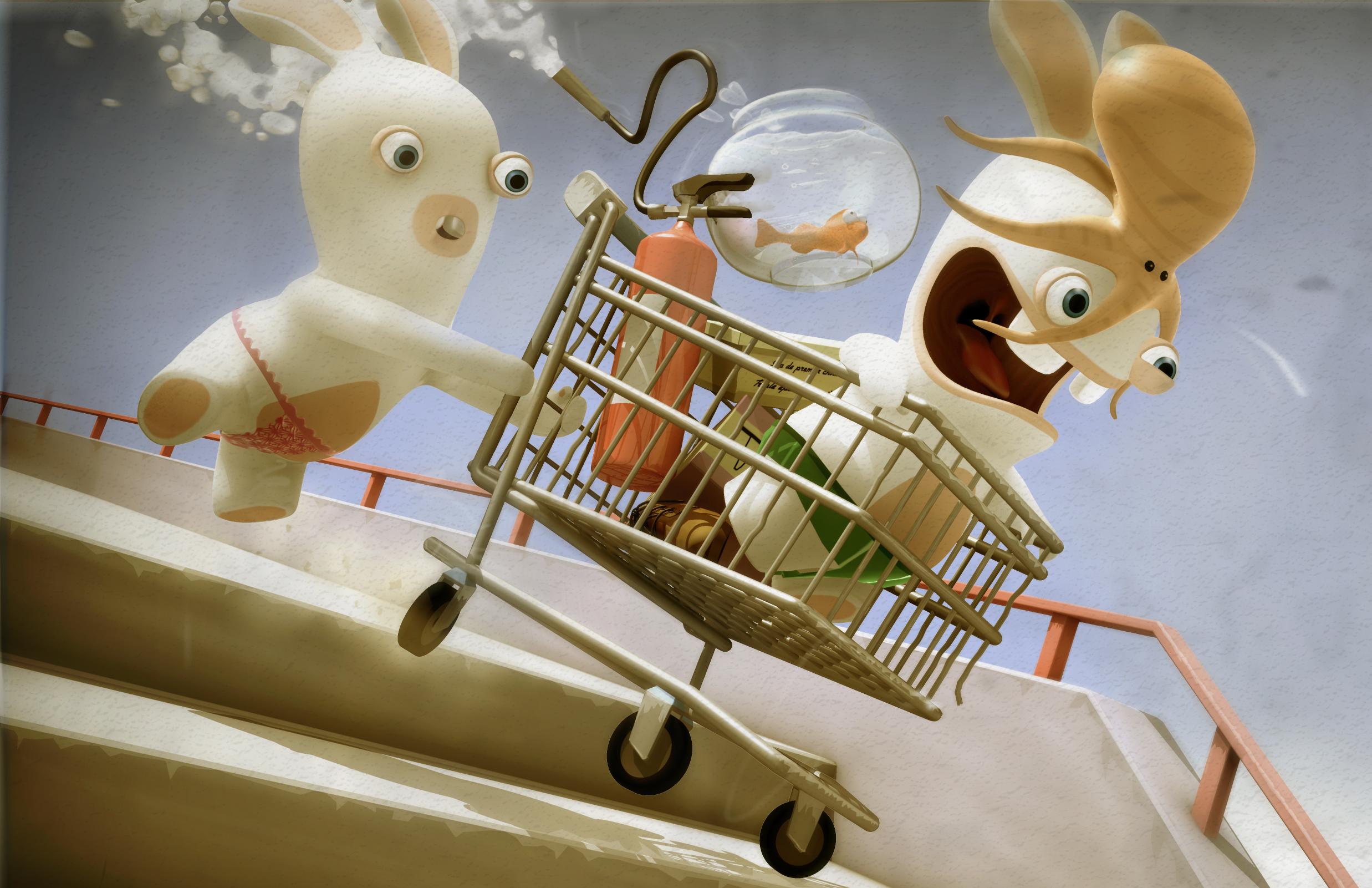
Pardon my French
Francisco Dominguez helps us decode Ubisoft’s corporate doublespeak.
Back in September, Rock Paper Shotgun’s John Walker interviewed Ubisoft representatives on the company’s decision to abandon their notoriously restrictive DRM policy. The site presented the piece as the result of several years’ worth of petitioning, and yet it achieved very little. Ubisoft confirmed that their reviled ‘always-on’ DRM had been abandoned all the way back in June last year, but admitted very little past that, refusing to explain the motivation behind that decision, or to even evaluate the success of the practice. Abandoning their current approach to DRM strongly suggests failure, but Ubisoft preferred to speak of improvements and customer feedback, while shrugging off previous critical statements about the efficiency of its system as unfortunate comments.
The next day, John Walker posted a follow-up piece speculating on Ubisoft’s reasoning. He claimed that while “many interpreted the responses from Stephanie Perotti and Michael Burk to be unsatisfactory, a lot of sites calling it ‘corporate speak’”, dissatisfied readers had missed “the nuance of what happened.” Citing Radio 4 interviews and the hard hitting politics show Newsnight, he claimed the act of evading a question can be as valuable as an answer. Unfortunately, an aggressive line of questioning is less informative in text, where words are stripped of verbal delivery and the speaker’s visual reaction to the interrogation hidden. Perhaps his intention matched that of his comparisons, but his results differed.
John Walker is a fine, conscientious writer, who, along with the other writers at the site he co-owns, has long fought overzealous DRM with insight and deserved mockery. Few outlets would defend the deficiencies of their interview subject, especially when that subject has revelled in blaming its target audience for the perceived decline of the PC market. I appreciate that he was at least aware of his interview subjects’ frustrating stubbornness, and brave enough to address it.
However, defending Ubisoft suggests the attitude they showed throughout the interview is defensible. I don’t think it is. Regretfully, I can’t help feeling that by publishing their opaque interview answers about an event that occurred unannounced over a year ago as if it was some kind of breakthrough, then going on to justify them, Rock Paper Shotgun became partly complicit in Ubisoft’s practised consumer hostility. If an interview requires a follow-up piece to extrapolate on the answers given – not even to elaborate, but to speculatively answer the questions asked in the interview itself – the interview was a failure. A failure on the interviewee’s side perhaps, but the interview’s worth remains negligible.
The follow-up concludes that Ubisoft’s evasive answers to pointed questions are justifiable because it avoids identifying internal culpability. But doesn’t that just imply the duplicity extends towards shareholders as well as customers? As Rock Paper Shotgun have pointed out in the past, subjecting customers to constant verification checks and other forms of digital surveillance, which pirates evade with ease, causes exactly the opposite of the DRM’s intended effect of impeding illegal software users. There is no doubt that their previous DRM policy was a failure and I find it hard to believe it isn’t regarded as such within the company. The end of the practice implies failure. The silent adjustment of policy last June implies failure. The suggestion that, a year later, internal discussion of that DRM’s effectiveness is still ongoing implies failure. Ignoring the elephant in the room can work for a while, but eventually someone has to grab a shovel and clean up the mess.
Farcical repetition of the same sentiments can be disastrous to your image. Just ask Ed Miliband. For the benefit of those of you who unfortunately neither live in the UK nor follow Charlie Brooker, in 2011 a perplexingly surreal interview with the Labour Party leader was leaked, in which he answered a series of questions on recent public sector strikes with identical statements. Perhaps he would change the word order, or stress a different part of the sentence, but the continuously recycled statement barely deviated from original. Not an evasive refusal to comment, but a refusal to comment in any terms other than those of a prepared script.
Apparently this practice is common, the footage resulting from the peculiar process can be edited for the most convenient news soundbite. But here it was employed to supply propaganda disguised as the product of frank dialogue. Ridiculous, but permitted by a media who accept this behavior. Most people were surprised when frustrated reporter Damon Green broke ranks and leaked the video. I don’t expect he will be invited to interview Labour party members again.
To avoid similar reprisal, Rock Paper Shotgun can’t outright ridicule their interview subjects, nor should they. But should they defend, nevermind publish, the comically rote answers of an interviewee firmly clinging to the company line? Good relations with publishers must be preserved for the outlet’s future, even if this necessity has inhibited the games press’ ability to genuinely interrogate publishers and developers for some time now. Walker astutely acknowledged that now Ubisoft have at last announced some intent to give PC gamers what they want, hostility would be counterproductive.
But I can’t help feeling that this is a ceasefire, not lasting peace. A previous gesture Ubisoft extended towards PC gamers was the DRM-free Prince of Persia release, which was stifled by breathtaking arrogance. Ubisoft made no commitment to change, but instead chose to insult their customers’ moral integrity. On their own forums. Announcing their intentions to release it without DRM for the first time, a Ubisoft representative felt inclined to say: “A lot of people complain that DRM is what forces people to pirate games but as POP PC has no DRM we’ll see how truthful people actually are. Not very, I imagine.” A company that would honestly say such a thing of their own devoted fans has a lot to make up for. For years Ubisoft saw the constant surveillance of customers as their right, as if circumstances and technological mishaps conspire to turn paying customers into thieves the moment they pass beyond the verification server’s sight. This partial public turnaround so long after the actual policy change does little to engender trust.
And consumer trust is important. It may not be reciprocated by the company, no matter how fond and cuddly they appear, but a sense of respect is the bare minimum required to cement purchase habits. Nintendo understand this. After the 3DS’s early price cut, Iwata tried to salvage the trust of early adopters with an effusive apology and an offer of 20 games from the eShop. Early adopters lost money due to their faith in the company, so compensation with monetary value was necessary. Nintendo may have more cause than Ubisoft to behave this way, given their substantial recent losses, but the Japanese company’s ‘family’ image makes me feel it was a decision in keeping with the company culture. Many still felt betrayed, but contrition, coming from the highest echelons of the company, was apparent.
Ubisoft can’t trade on this illusion as much as Nintendo, few could. But even if they won’t compensate for past crimes, at the very least they will have to admit them. Instead, by refusing to explain the reasoning behind the DRM decision or to publicly evaluate the success or failure of the scheme, they keep the option to return to the policy whenever they choose. No commitment has been made that can’t easily be redacted. The scheme was never declared to be abandoned as a concession to consumer rights, only quietly sidelined after repeated fractious attempts to impose it. They had a chance to come clean about their mistakes, and these have been mistakes, but their absolute refusal to discuss their failures suggests their contemptuous arrogance and latent hostility to the platform hasn’t been entirely eradicated yet.
This is only a first step, and Rock Paper Shotgun recognised it as such. It’s great that they have taken it, but Ubisoft are a long way from being redeemed and only honest, frank dialogue with its customers will help build that trust. If we knew where they were coming from, we’d have a better idea of where they are going. As it is, despite the constant reassurance that feedback is acknowledged, the customer may go ignored, or worse, maligned, again.
Francisco Dominguez is an English graduate currently pursuing a postgraduate career in stacking food. You can follow him on Twitter.

